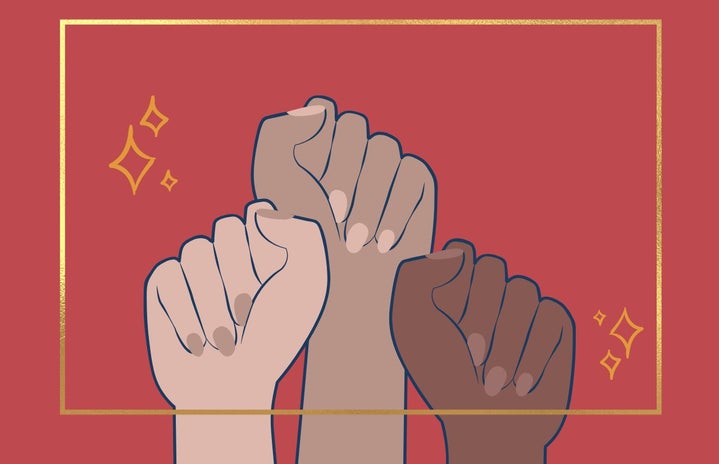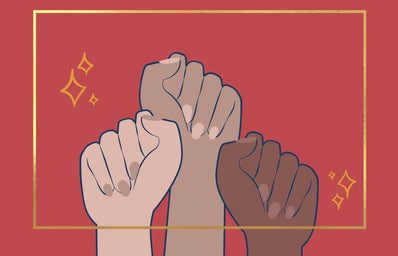Feminism is an umbrella term consisting of various branches of ideologies and beliefs. By definition, it is the “belief in and advocacy of the political, economic, and social equality of the sexes expressed especially through organized activity on behalf of women’s rights and interests.”
However, for a movement dedicated to advocating for the struggles and disparities women face, it doesn’t do an effective job in including all women.
More often than not, today’s mainstream feminism shows itself to be vocal about the struggles and issues surrounding a specific demographic of women: middle-class, white women.
Take the “missing white woman syndrome” as an example. The media coverage of missing white women surpasses any coverage of violence faced by BIPOC or trans women. The disproportionate coverage only feeds into the systemic abuse of marginalized women.
Let’s bring it one step further and examine how some mainstream “feminist” beliefs actually end up hurting Muslim women specifically.
The stereotype of religious garments and veils such as the hijab, niqab and burqa being oppressive toward women furthers an Islamophobic ideology all over the world. Muslim women who choose to wear these garments are seen as victims and part of an oppressive society when that is simply not the case.
These sentiments have power, too. Countries such as France, Switzerland, Belgium and more, have differentiating legislation with regard to banning hijabs, niqabs and/or burqas.
So, you’re telling me that what one thinks is feminism…is actually harmful Islamophobic rhetoric?
This is not feminism. Feminism should be and needs to be so much greater than that.
It needs to be more than normalizing body hair or “freeing the nipple” – issues that remain valid, but ones that eventually take centre-stage of the movement and neglect crucial issues requiring immediate attention. It needs to be more than focusing on one group. And it needs to be more than giving into stereotypes that ultimately end up hurting marginalized women even more.
Instead, the struggles of Black women, trans women, Muslim women, queer women and every other woman must also be heard, acknowledged and dealt with.
Let’s talk about the masculinization of women of colour, the high rates of violence faced by trans women or even how it’s more likely for a Black woman not to get adequate healthcare than any other demographic.
And while marginalized communities within this big group speak up, it’s also important for more privileged individuals to listen. Cisgender, heterosexual and white women need to listen to the concerns of others as well – that’s one of the first steps in the formation of genuine solidarity rather than a performative attitude.
It’s time for intersectionality to be at the forefront of feminism.
Women of all ages, races, sexual orientations, creeds, social statuses and more must be given a platform to voice their experiences, opinions and thoughts. Putting the spotlight on one demographic, as we’ve seen thus far, only creates more division and harm.
Feminism cannot live up to its true definition until, and unless, all women are heard. Being a feminist is not enough anymore – not without intersectionality.
If you’d like to do some more research or reading on intersectional feminism, I’d suggest for you to check out the works of Kimberlé Crenshaw. She is, after all, the one who created the term “intersectional feminism” in 1989.


